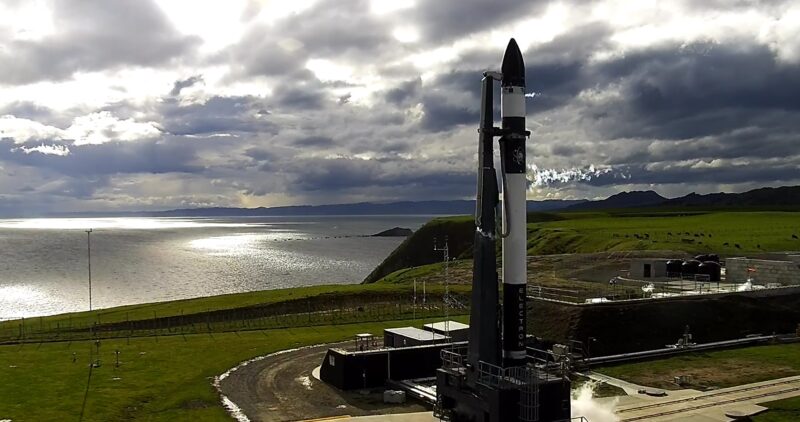Latest News

A Rocket Lab Electron rocket on the pad at Launch Complex 1 ahead of “I Can’t Believe It’s Not Optical” mission. Photo: Rocket Lab
Rocket Lab’s first mission since its launch failure in July is slated for later this week, and it will carry Sequoia, the first publicly available satellite in Capella Space’s planned constellation.
The two-week window for the launch from Launch Complex 1 on New Zealand’s Māhia Peninsula opens Wednesday, Aug. 26 at 11:05 p.m. EST. The mission’s name, “I Can’t Believe It’s Not Optical,” is a play on the satellite’s Synthetic Aperture Radar (SAR) technology. According to Capella, Sequoia is a 100 kg class microsatellite and will be positioned in a 45-degree inclination, which will give customers immediate access to rapid coverage of the Middle East, Korea, Japan, Europe, South East Asia, Africa, and the U.S. Sequoia is a re-engineering of Capella’s test satellite Denali, which was launched in December 2018.
In a Monday blog post, Capella CEO Payam Banazadeh said the milestone comes despite challenges from the COVID-19 pandemic.
“The pandemic has impacted much of the economy, and the space industry is no exception. COVID-19 has affected our supplier network and our initial launch plans and required our satellite team to work in shifts in reduced group sizes. But despite all the challenges, our team was able to not only get Sequoia across the world to launch out of New Zealand, but also is on track for manufacturing the rest of the constellation as our other launches are approaching,” Banazadeh said.
Rocket Lab announced in late July that the Federal Aviation Administration (FAA) cleared a return to flight after an investigation into the July 4 launch failure, which lost payloads for Canon Electronics, Planet, and In-Space. Rocket Lab narrowed down the issue to a single anomalous electrical connection. CEO Peter Beck said at the time that Rocket Lab was able to reliably replicate the issue and mitigate it through a slight change in production processes. In addition, Rocket Lab created a test and screened for the issue in current vehicles in stock through in-depth testing and procedures.
“We got to root cause in record time, made all the corrective measures and Electron is now even more reliable than before,” Beck tweeted on Aug. 21.
Get the latest Via Satellite news!
Subscribe Now